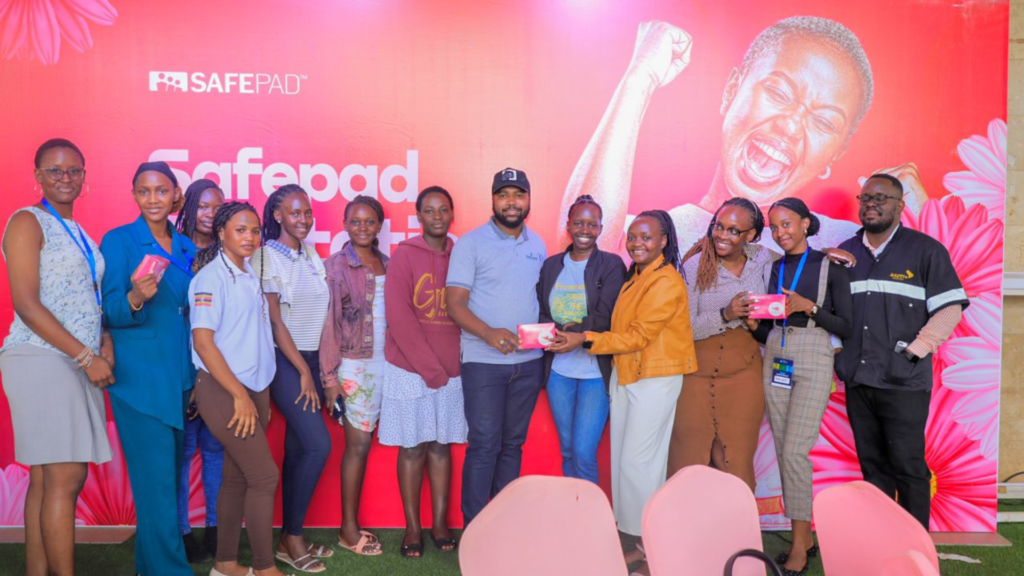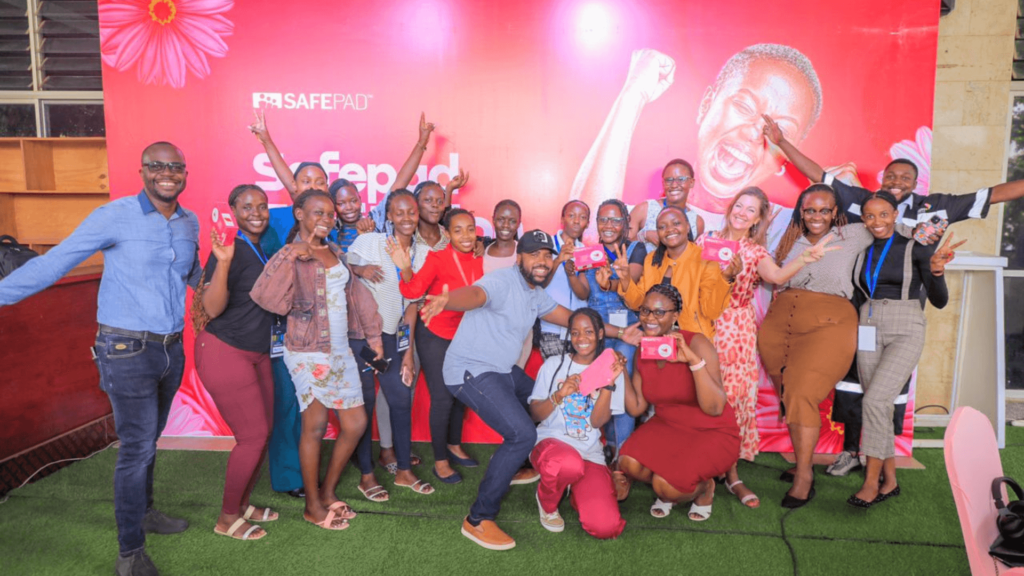On January 25, 2024, the International University of East Africa (IUEA) hosted a significant event: the launch of Safepad’s safe and reusable sanitary pads, in collaboration with the Sauti Media Group. Notable guests, including Mr. Muhammed Kasule representing the Ministry of Education, Ms Doreen Tukamushaba representing the Ministry of Health, Ms Trine Angeline Sig, the Co-founder and Managing Director of Real Relief and Miss Uganda, attended the event. Through this event, IUEA reaffirms its commitment to supporting menstrual health, as demonstrated previously by its donation of sanitary pads to over 100 vulnerable women.
What is Safepad?
Safepad, a product of Real Relief, offers a safe, reusable, hygienic, and sustainable menstrual solution. Recognising the merits of this incredible product, Real Relief was awarded the “Danish Design Award 2018” under the “Daily Life” category. The event marked its official launch in Uganda, with IUEA’s Vice Chancellor, Professor Emeka Akaezuwa, highlighting two crucial benefits: cost-effectiveness and environmental sustainability.
Why choose Safepad?
Safepad Uganda’s CEO emphasised that this is more than a product; it’s a tool to combat period poverty. The reusable nature of these pads not only makes them cost-effective but also contributes to environmental conservation as it generally reduces the disposal of pads. The event underlined how affordable menstrual hygiene is a collective responsibility.
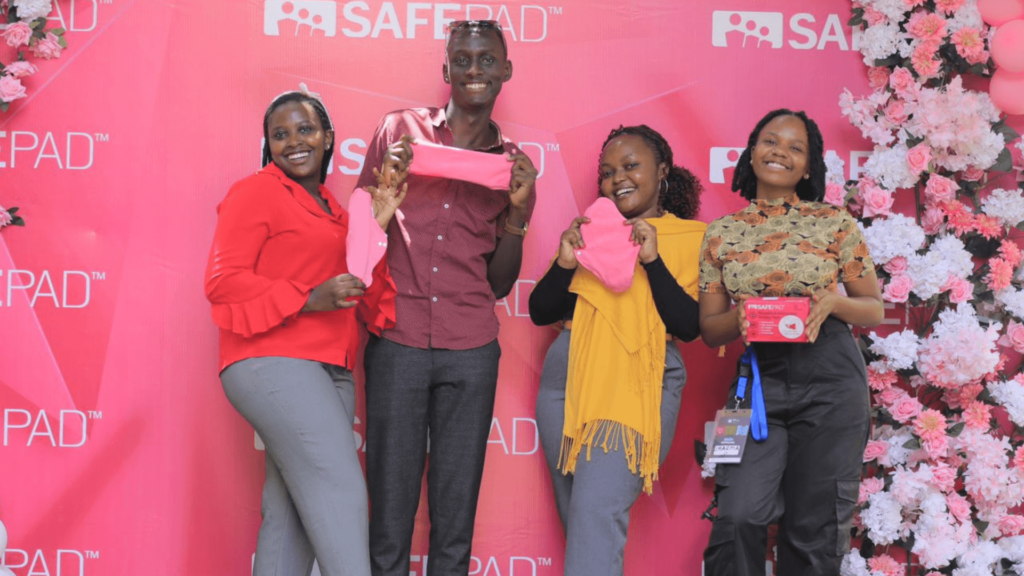
Should men care about these issues?
James Kasangaki Tumusiime, Country Director of Reach a Hand Uganda, shared a touching story about his daughter’s journey into womanhood. As a father, he is proud to be able to discuss these issues with his daughter openly. He stressed the importance of both men and women openly engaging in discussions about menstrual issues, emphasising that it is a concern for both genders.
Are Safepads safe for reuse?
The Managing Director of Safepad Uganda reassured guests of the safety of their pads, emphasising their certification for safe use. In addition, the organisation invites the public to investigate their production process through open workshops, highlighting the use of permanently bonded antimicrobial technology.
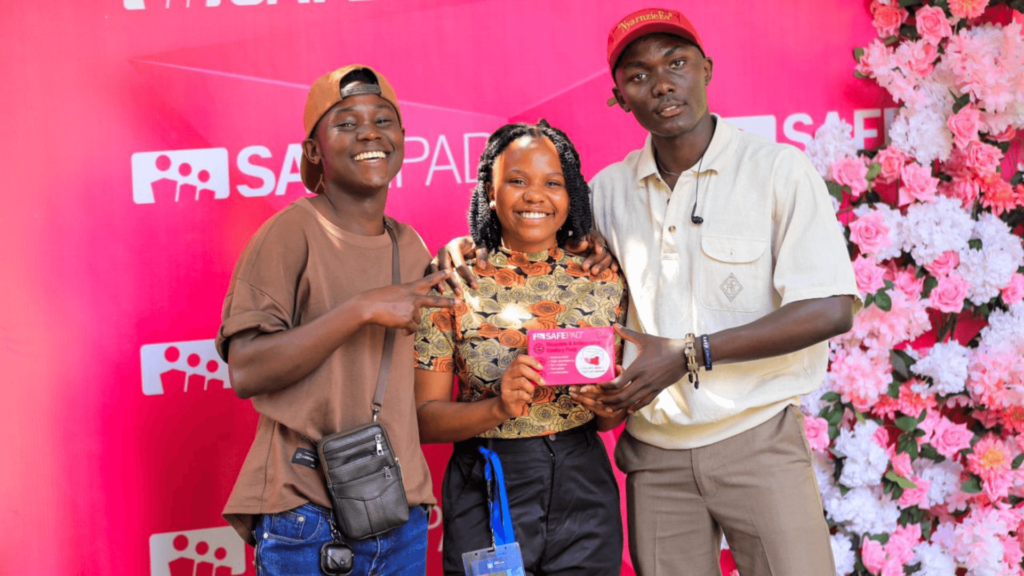
How did the event improve the accessibility of sanitary pads?
During the event, an auction for a painting created on-site was led by Reach a Hand’s CEO, Humphrey Nabimanya. The proceeds, totalling over 4.7 million Ugandan shillings, will fund the provision of more than 300 sanitary pads to those in need. The generosity of IUEA students and the Vice Chancellor contributed significantly to this cause.
Why should these products be accessible?
Speakers at the event emphasised the unfortunate impact of the lack of affordable menstrual hygiene products on women’s progress. A representative from Uganda’s Ministry of Education shared heartbreaking stories of girls failing to advance in their academic journey due to the inability to afford sanitary pads, with some resorting to extreme measures like trading sex for this basic necessity.
Was there an outreach session?
Following the event, IUEA delegates and other attendees actively participated in a community outreach initiative. While young girls from the local community were provided with complimentary pads during the event, the outreach extended beyond the confines of the venue. Attendees ventured into the Kansanga community, generously distributing these reusable hygienic products to women, ensuring broader access to quality menstrual hygiene products.
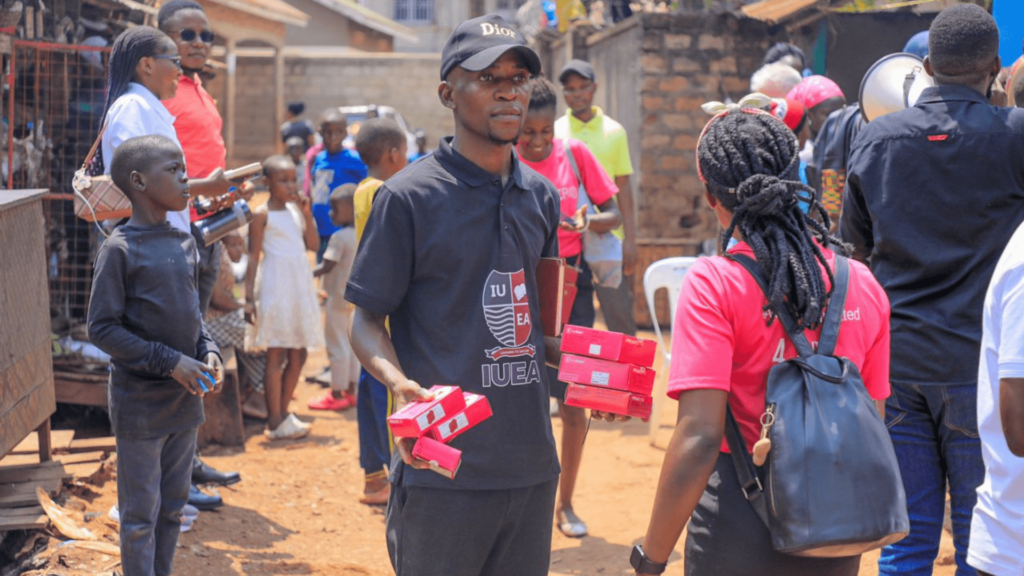
How has IUEA empowered women?
IUEA takes pride in its commitment to diversity and empowerment, evident in its scholarship program dedicated to women and the appointment of the first female chancellor in Africa. The university recognises the crucial role education plays in empowering women, with young women constituting 30% of IUEA’s student body.
IUEA’s involvement in the Safepad launch event aligns with our broader mission to contribute to a healthier and more inclusive future. By addressing menstrual health challenges, the university plays an important role in empowering women and supporting a diverse and equitable academic environment. Supporting such initiatives reflects IUEA’s commitment to education without discrimination, ensuring that everyone has access to quality learning, regardless of their background, beliefs or gender.
